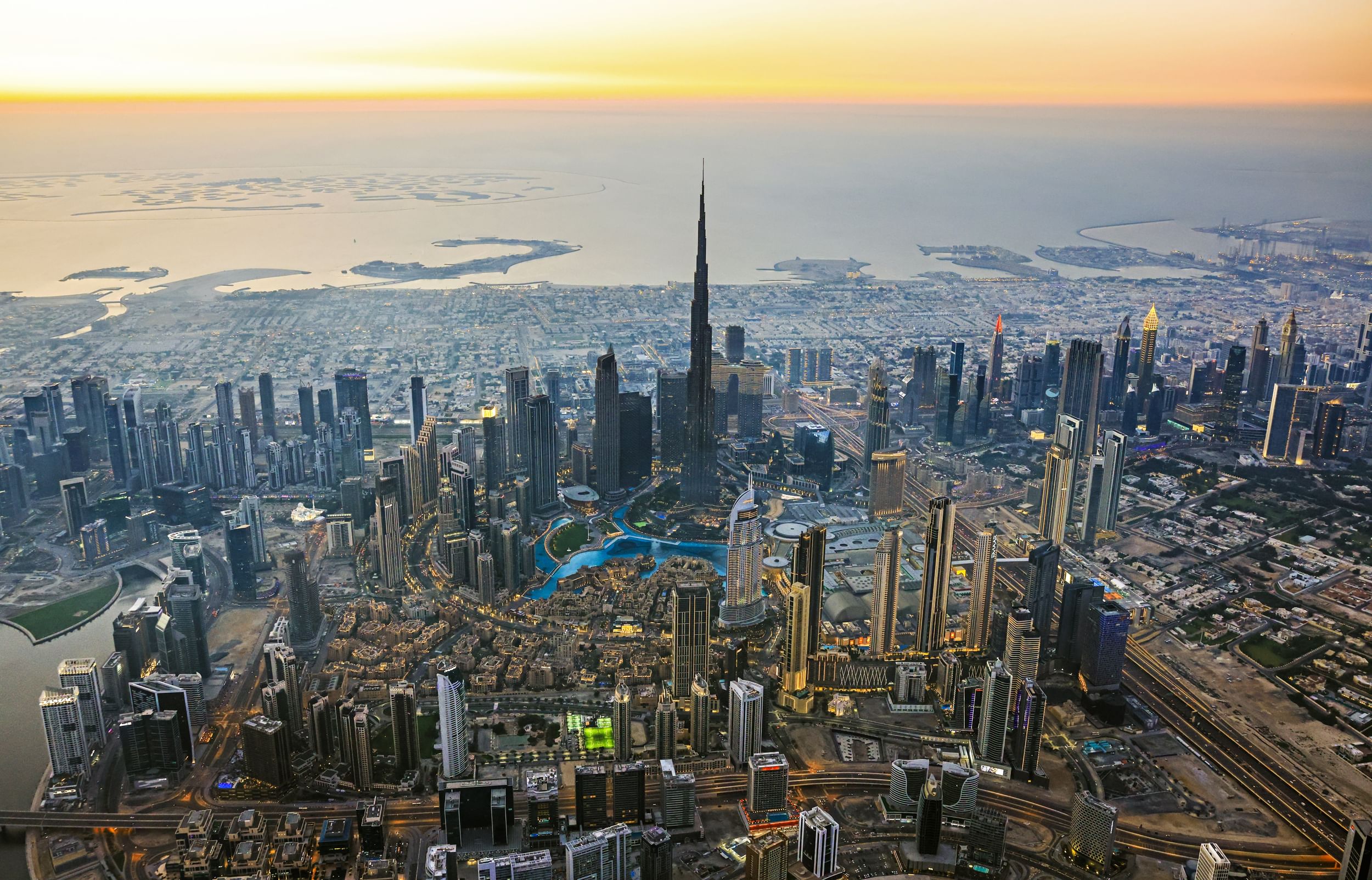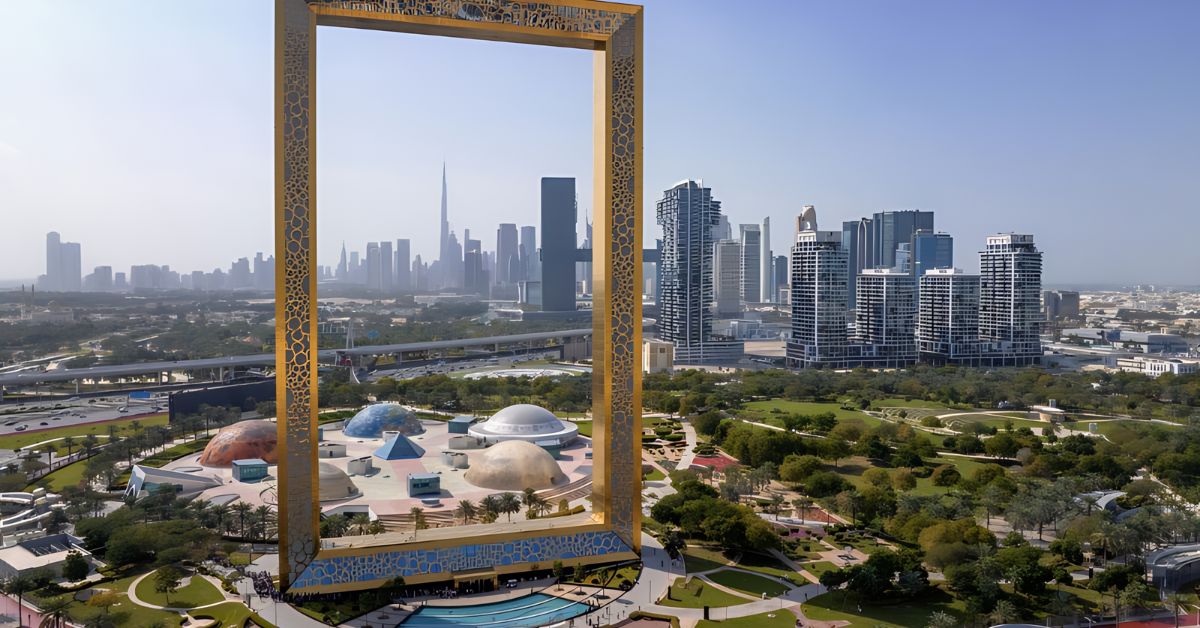DUBAI, UAE — Dubai, synonymous with luxury, innovation, and architectural marvels, has long been a global hotspot for real estate investment. In 2023, the Dubai real estate market displayed a dynamic landscape marked by resilience and adaptability. As we step into 2024, the sector continues to evolve, offering challenges and opportunities for investors and residents alike.
In 2023, Dubai’s real estate market showed remarkable stability amidst global economic uncertainties. The city’s strategic location, investor-friendly policies, and progressive development initiatives played a key role in sustaining investor confidence.
Demand for real estate in Dubai surged following the government’s successful handling of the coronavirus pandemic, bolstered by visa facilitation policies that attracted more foreign investment. The luxury home segment benefited significantly from an influx of Russian investors looking to safeguard their assets, cryptocurrency millionaires, and affluent Indians seeking second homes.
Residential real estate in Dubai experienced a revival in 2023, with a notable shift towards sustainable and innovative living spaces. Developers focused on eco-friendly designs and integrated smart technologies, catering to the changing preferences of buyers. The emphasis on community-centric developments, complete with green spaces and recreational amenities, showcased the city’s dedication to promoting a high quality of life.
At A Glance Dynamic Growth in 2023: Dubai's real estate market showed remarkable stability and growth amidst global uncertainties. Luxury Real Estate Boom: Significant demand increase, especially in luxury home segment with major foreign investments. Sustainable Living Spaces: Shift towards eco-friendly and innovative residential developments. Record-Breaking Sales: Homes valued over US$ 25 million doubled in sales, attracting global high-net-worth individuals. Commercial Sector Growth: Dubai continues to attract multinational corporations and startups with favorable policies. Future Trends: Emphasis remains on sustainability, affordability, and the post-Expo era's urban development in 2024.
Sales of homes valued at over US$ 25 million each doubled in Dubai last year, driven by purchases by some of the world’s wealthiest individuals. This surge in luxury real estate sales solidified the city’s status as a business and tourism hub in the Middle East, as reported by Knight Frank.
According to the real estate consultancy firm, the number of ultra-luxury home transactions in the city reached 56, with total sales amounting to US$ 2.27 billion in 2023, up from 28 homes worth US$ 1.24 billion sold the previous year. Twenty-two of these homes were acquired on the artificial Palm Jumeirah island, while 15 are located on the seahorse-shaped Jumeirah Bay island.
The most expensive deal in 2023 was for a five-bedroom apartment in the Como Residences project, a tower located on the fronds of Palm Jumeirah, which is still under construction. According to Knight Frank’s report, the 21,949 square foot (2,039 square meter) apartment was sold for US$ 136.2 million.
The ultra-luxury home segment in Dubai is a relatively recent phenomenon. Prior to 2021, the maximum annual sales of homes priced over US$ 25 million rarely exceeded four homes.
On the commercial front, Dubai continued to attract multinational corporations and startups, further cementing its reputation as a global business hub. The expansion of free zones and favorable tax regulations have made it easier for businesses seeking a strategic regional base. Additionally, the rise of remote work has spurred demand for flexible office spaces, leading to the development of innovative co-working solutions throughout the city.

Looking ahead to 2024, several trends are expected to shape Dubai’s real estate landscape. A key factor is the city’s transition into the post-Expo era. The transformation of the Expo 2020 site into District 2020, a sustainable urban district, promises new opportunities for investors and developers. This repurposing is set to redefine Dubai’s real estate dynamics with a focus on mixed-use developments and integrated smart infrastructure.
Furthermore, an increasing emphasis on affordability and inclusivity is likely to expand the range of mid-market and affordable housing options. Government initiatives, such as the Rent-to-Own program, are designed to make homeownership more attainable, promoting a diverse and inclusive community.
In 2024, Dubai’s commitment to sustainable development is expected to intensify, with a focus on green building practices and energy-efficient solutions. Investors and developers are likely to embrace eco-friendly designs and technologies, aligning with global efforts to combat climate change.

